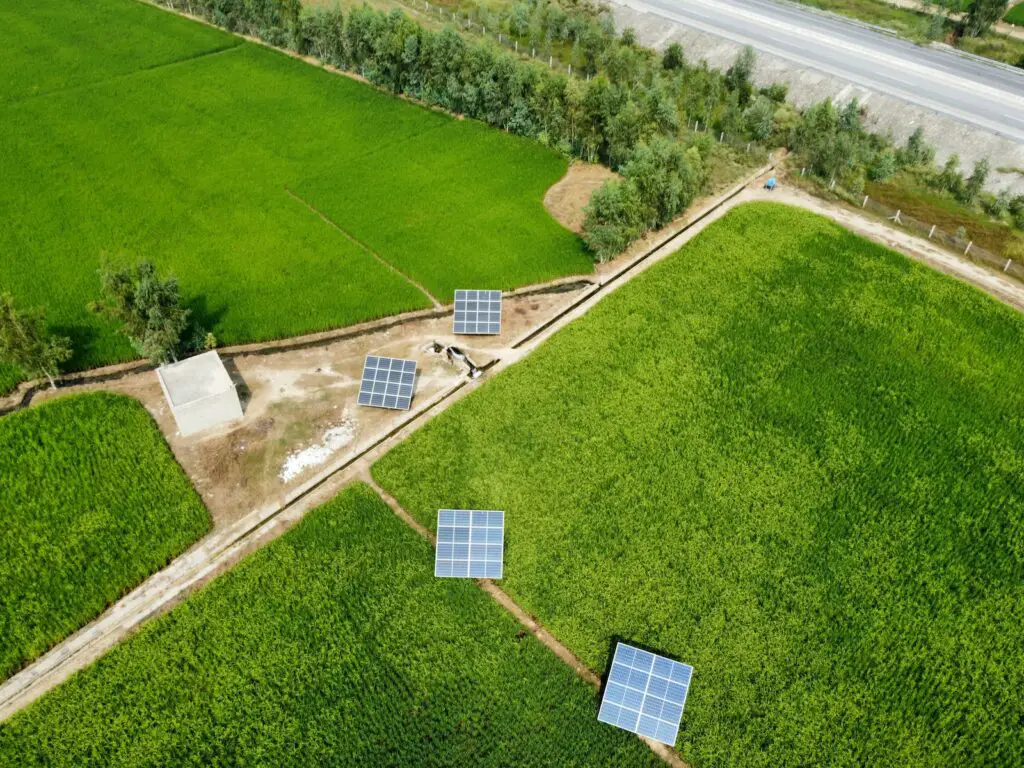Solar power plants have a minimal environmental impact because the sun is abundant on Earth, making them a viable option for producing carbon-free or negative-carbon energy.
More and more people are investing in solar power plants because they see the benefits—free electricity for their homes and a reduced environmental footprint—of going solar.
According to scientific knowledge, energy cannot be created or destroyed; only its form may change. So, what will happen if solar panels aren’t connected to anything?
Solar net meters will not function without an external power source. However, the high voltage generated by a solar board is routed to the panels.
The solar panels will get hotter at higher voltages, but the phone body is designed to withstand higher temperatures. In this post, we will acknowledge whether is it ok to leave a solar panel disconnected.
Is It OK To Leave A Solar Panel Disconnected?
There is no need to disconnect your panels at this time. Unconnected solar panels leave circuits free, so generated electricity has nowhere to go. If the system is overworked, the panels may stay intact.
Before a storm or if you will be away from home for a few days, it is perfectly appropriate to turn off the solar panels. Make sure it’s at most three days, though.
Unplugged solar panels function normally, like batteries do when they’re not connected. Despite voltage, no effect will be produced because there is no circuit through which the current can flow.
Even though unplugging a solar panel every once in a while is fine, doing so regularly is not recommended once everything has been set up. One of the primary functions of solar panels is to supply power for homes and businesses.
Even when the terminal voltage of a shorted solar panel is close to zero, a current will still flow that is proportional to the amount of light hitting the solar cells. However, no current will flow because it is disconnected from the source. Power generation is effectively 0 if either I or V is zero.
If you connect solar panels to your home’s electrical system, the power they generate will flow through your walls and into your home. However, there are serious risks involved with doing so. To begin, the solar panel array must have its dedicated circuit.
How To Disconnect Solar Panels
Before disconnecting solar panels you should power down the entire system following the shutdown procedures detailed in the user manual or the operational guidelines provided by the inverter manufacturer. This is both for the safety of everyone involved and to ensure that the system lives as long as possible.
Installing or removing solar panels is a breeze when you use a fast disconnect. This requires donning protective gear, switching off the AC/DC power source, making sure the panels aren’t generating any electricity, checking the voltage, and disconnecting the MC4 connectors and mounting hardware.
Acknowledge the following steps to disconnect solar panels
- Disconnect the breaker that supplies power to the MPPT charge controller from the battery bank.
- Close the MPPT Controller
- Disconnect the circuit breaker between MPPT Controller and Solar Panels.
- Wrap the solar panel in a dark cloth or flip it over
- After disconnecting the negative MC4 connectors between the solar panel and PV extension wire detach the positive MC4 connectors.
Solar panels can be disconnected safely at any time. However, before disconnecting the panels, bear the following in mind. When the sun is out, the solar panels must remain plugged in. To be on the safe side, wait till nighttime. Wait until dark to turn off the system, as the panels will always have power when the sun is up.
Regarding voltage and power, more solar panels equals more output. Use the same caution you would with any other electrical device. Before you try to unplug anything, be sure the voltage is low with a multimeter.
When disconnecting solar panels, be sure to do so following the manufacturer’s instructions. While specific instructions will vary by design, unscrewing the connectors from the board is typically required. The panel can be detached by taking out the cords.
Is It Important to Unplug Solar Panels?
It is not required that you disconnect your solar panel. Unless, of course, you’re thinking about how to prevent pigeons from nesting in the area around your solar panels. Once everything is set up, a solar panel will seldom be unplugged, and while it’s not terrible if it’s detached for brief periods, it could be better.
The whole point of installing solar panels is that your home’s electrical systems can run on clean, renewable energy. If you turn off the solar panel, it could be hours or days before it has collected enough energy to start distributing it again.
Unless there is a specific reason to turn the solar panel off, leaving it on permanently is the best practice; the panel will always have some electrical load, so the minor increase in temperature won’t harm it. It could be a good idea if you aren’t planning to keep the solar panel up for a long time. You could, for instance, take a vacation lasting several weeks, or poor weather could be predicted for that time.
You may have hooked in some solar deep-cycle batteries. The charge should remain constant when you reconnect them to the solar panel. Battery life decreases over time, so remember to plug them in after a while.
Conclusion
A solar panel system requires an Ac / Dc disconnect to be installed on the roof and wired into the house. To put it simply, an inverter’s job is to change DC power into AC power, whether it’s a solar inverter or a regular one.
For optimal system longevity, always power down the solar system entirely as per the inverter manufacturer’s shutdown instructions found in the inverter’s user manual. We hope you must have acknowledged everything is it ok to leave a solar panel disconnected?
